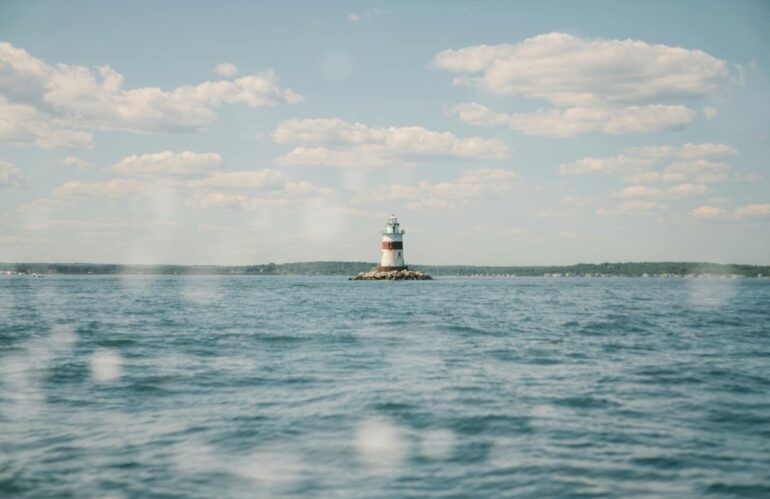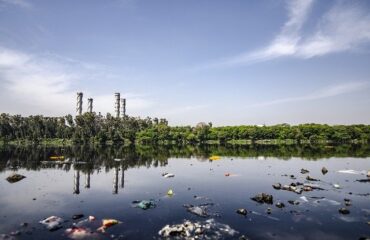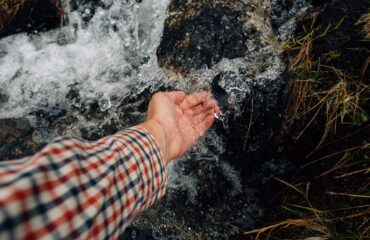As someone who has been passionate about environmental issues for years, when the time came to choose a research topic for my project, I wanted something meaningful that could spark real-world change. After considerable thought, I found water protection to be a compelling and critical theme to explore. Water is essential not only to life but also to global sustainability, yet it’s constantly under threat from pollution, overuse, and climate change. In choosing this topic, I also had to focus on how to make a good research paper—by crafting a strong thesis, structuring the argument clearly, and ensuring the research was backed by credible sources. This article is a reflection on how I integrated water protection as the core of my research, providing tips and insights for anyone looking to do the same.
Why Water Protection Is a Crucial Research Theme
Water covers about 71% of the Earth’s surface, yet only 3% is freshwater, and even less is accessible for use. The demand for clean, safe water continues to increase due to population growth, industrial activities, and climate change. This makes water protection not just a topic for environmentalists but a pressing issue that touches numerous disciplines.
For instance, the United Nations’ Sustainable Development Goal 6 emphasizes ensuring access to water and sanitation for all by 2030. But achieving this goal is no small feat. Research into water protection doesn’t just address one global crisis; it can cover a variety of subfields. Whether you’re looking into environmental science, economics, or even public policy, water protection offers a rich vein of research opportunities.
In my own work, I focused on how water conservation strategies could be more effectively integrated into urban planning. What surprised me was how interconnected everything became—the more I studied, the more I realized water issues influence not just ecosystems but human health, economic development, and social equity.
Choosing a Research Topic: Key Areas within Water Protection
When beginning my research, I quickly learned that water protection is a vast field. Narrowing my focus was essential. I started by looking into several key areas:
- Water Pollution and Waste Management: Water pollution is a critical issue worldwide, with industrial waste, plastic, and agricultural runoff being the primary culprits. I decided to focus on how cities can minimize water pollution through better waste management policies.
- Water Conservation Strategies: A big part of my research looked at conservation strategies, particularly in urban areas where water use is incredibly high. I reviewed successful water management programs in cities like Cape Town, where a severe drought in 2018 nearly left the city without water. Cape Town’s “Day Zero” initiative, which involved rationing water and encouraging citizens to cut down their usage, became a fascinating case study for my project.
- Policy and Governance: My research also touched on water protection policies at local, national, and global levels. For instance, in Europe, the Water Framework Directive (WFD) serves as a legally binding framework to protect water bodies. I realized the importance of these policies when I read, “Legislation is the most powerful tool we have to ensure the long-term protection of our water resources” (European Environment Agency, 2019).
- Technological Innovations: Water recycling technologies, smart irrigation systems, and even advanced filtration methods fascinated me. These innovations are at the forefront of solving water scarcity and pollution issues. I included this in my research by examining technological solutions implemented in Singapore, which is considered a global leader in water management.
- Cultural and Social Perspectives: Water protection doesn’t just happen in labs or government offices. I found that community involvement and cultural respect for water resources are just as crucial. Indigenous communities, in particular, offer unique approaches to water stewardship that blend traditional knowledge with modern conservation techniques.
How to Structure Your Research around Water Protection
Once I had my focus areas, I began organizing my research. Structuring a research paper on such a broad topic can feel overwhelming, but here are some strategies I found helpful:
- Formulating a Research Question: A well-defined research question is the backbone of any project. I began with a broad idea: “How can urban areas better protect their water resources?” Over time, I refined this to “What specific urban planning strategies can effectively reduce water pollution and improve conservation efforts?”
- Literature Review: A literature review is critical for grounding your research. I read widely on water protection, starting with peer-reviewed journals and reports from organizations like the World Health Organization and the Environmental Protection Agency. This gave me a solid foundation to build my arguments on, and I quickly realized how essential it is to keep your sources credible. One standout source I found was a comprehensive study by the World Resources Institute, which highlighted how cities could cut water loss by up to 30% by investing in infrastructure upgrades.
- Methodology: For my research, I opted for a mixed-method approach, combining data analysis with interviews from water management experts. This approach allowed me to gain a more holistic understanding. When collecting data, I found government reports and studies from environmental NGOs to be invaluable sources of up-to-date and reliable information.
- Data Collection and Analysis: Using a combination of case studies, such as Singapore’s water recycling program and Cape Town’s crisis management, I was able to extract actionable insights. Data analysis involved comparing water use statistics before and after these programs were implemented, which provided a clearer picture of their success rates.
- Interdisciplinary Approach: Water protection isn’t just about biology or chemistry; it’s about economics, policy, and social behavior. I included perspectives from multiple fields in my research, which I believe strengthened the overall argument. This interdisciplinary approach also helped me see water protection not just as a scientific issue, but as a deeply human one, affected by politics, culture, and economics.
Tips for Writing a Strong Research Paper on Water Protection
Once the research phase was complete, the writing process began. Here’s what helped me craft a clear and compelling paper:
- Clear and Concise Thesis: Your thesis is the guiding light of your research. Mine was simple but impactful: “Water conservation and pollution reduction strategies can be more effectively implemented through interdisciplinary urban planning.” This thesis gave me a roadmap for the entire paper.
- Effective Argumentation: I made sure that each section of my paper reinforced my thesis. When discussing Cape Town’s water crisis, for example, I wasn’t just talking about water scarcity. I tied it back to the importance of proactive urban planning and community involvement.
- Using Credible Sources: Always ensure your sources are top-notch. In addition to peer-reviewed journals, I referenced reports from established organizations. One that stood out was a 2020 report by the Global Water Partnership, which states, “Integrated water resources management is the best way to ensure equitable and sustainable water use for both people and the planet.”
- Visual Aids: Charts, graphs, and maps can add depth to your argument. I included a bar chart showing the reduction of water usage in Singapore after implementing their “Four National Taps” strategy, which helped to visually illustrate the program’s success.
- Conclusion and Policy Recommendations: After laying out the facts, I ended my paper with recommendations. I emphasized the need for stronger local governance and more investment in innovative water technologies. My final call to action was for urban planners and policymakers to collaborate on water protection strategies that address both current and future water challenges.
Case Studies to Support Your Research
Case studies can add real-world weight to your research. In my own paper, I used two:
- Singapore’s Water Management Success: Singapore’s holistic approach to water management, through its “Four National Taps” strategy (local catchment water, imported water, NEWater, and desalinated water), showed how a country with limited natural water resources can become a global leader in water management.
- Flint, Michigan Water Crisis: Conversely, Flint’s water crisis is a sobering reminder of what can go wrong when water protection policies fail. It served as a key example in my paper of how neglecting water infrastructure can lead to devastating human and environmental consequences.
Conclusion
In conclusion, writing a research paper on water protection was one of the most rewarding projects I’ve undertaken. The more I delved into the subject, the more I realized how complex and vital it is. If you’re considering using water protection as a research theme, my advice is to focus on the real-world impact your work can have. Whether you’re investigating policy solutions, exploring new technologies, or examining the cultural significance of water, your research has the potential to contribute to solving one of the most pressing challenges of our time.






